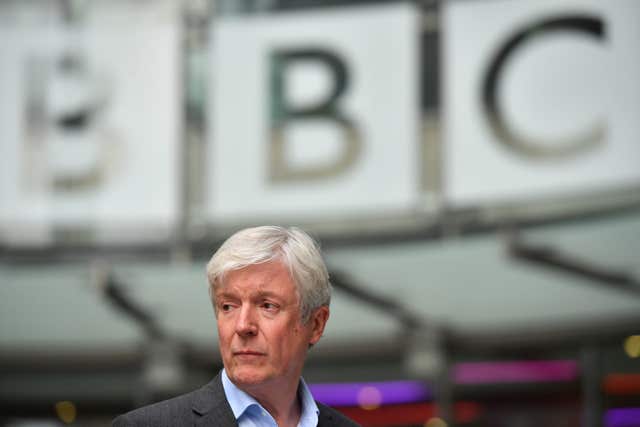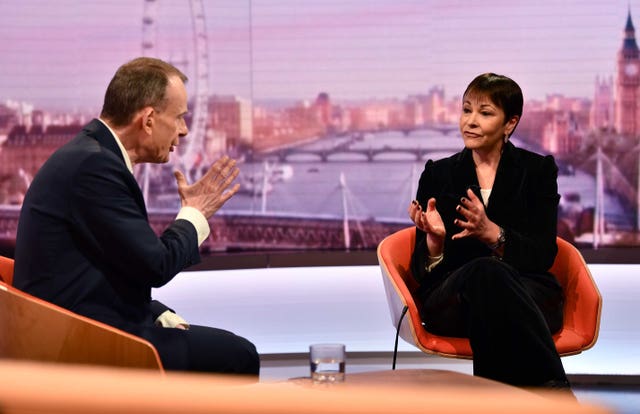
The BBC has boosted female representation to balance previously male-dominated shows, according to an internal report.
Reporters, analysts and commentators contributing to BBC shows were predominately male, but this pattern has been changed.
Women were under-represented on BBC teams, with 60% of contributions coming from men as of April 2018.
The voluntary 50:50 Project, launched in the same month, has aimed for better representation of BBC audiences by having 50% of contributors for its shows be female.
Flagship programmes including The Andrew Marr Show, The One Show and BBC Breakfast have achieved this 50:50 gender representation, as have 75% of all of the broadcaster’s teams taking part in the project.
This has risen from just 27% of programming teams in April last year, when the largest proportion of shows had 60% male contributors or more.
BBC director-general Lord Hall announced the project in 2018, and the pattern of representation across more than 500 BBC teams has now been reversed.
But the majority of viewers questioned about the changes have said they did not notice a difference, and that more female voices have not added extra enjoyment of programming.
Lord Hall said: “It’s amazing to see such a remarkable change in just a year – you can see and hear it right across our programming.

“I want the BBC to lead the way on equality and fairness, and this project demonstrates what can be achieved.
“Better representation is something the whole media industry needs to address so I’m really pleased others are now following us and adopting this project for their own organisation.”
Outside organisations including the Financial Times, ABC News and STV are set to copy the BBC approach to monitoring and implementing gender balance.
Challenges faced, according to the BBC, were finding gender-balanced contributions in areas such as politics and business.
More basic reasons like staffing during holidays have made it difficult to ensure a perfect balance.
The BBC has said that a third of viewers surveyed have noticed a difference in gender balance on their radios and screens since the 50:50 Project began.

One in five viewers said “women increased enjoyment”, according to a BBC report into the project. Younger viewers in the survey were more likely to appreciate the changes.
More than half of viewers felt that the BBC portrays women positively.
BBC Live political programmes assistant editor Miranda Holt said: “Politics can be a male-dominated environment but our team’s success in the 50:50 Project has given us the satisfaction of seeing new voices – politicians, journalists and commentators – on all our live political programmes.
BBC director of news Fran Unsworth added: “It’s extremely encouraging to see the progression made by so many teams to ensure we have more female voices represented across our news and current affairs output and it can only add to the quality of the programming we offer our audiences.”
The 50:50 Project is part of a wider commitment to achieve 50% women on screen, on air and in lead roles across all genres from drama to news by 2020.
The data used in the BBC report concerns the BBC teams monitored for the 50:50 project.


Comments: Our rules
We want our comments to be a lively and valuable part of our community - a place where readers can debate and engage with the most important local issues. The ability to comment on our stories is a privilege, not a right, however, and that privilege may be withdrawn if it is abused or misused.
Please report any comments that break our rules.
Read the rules here